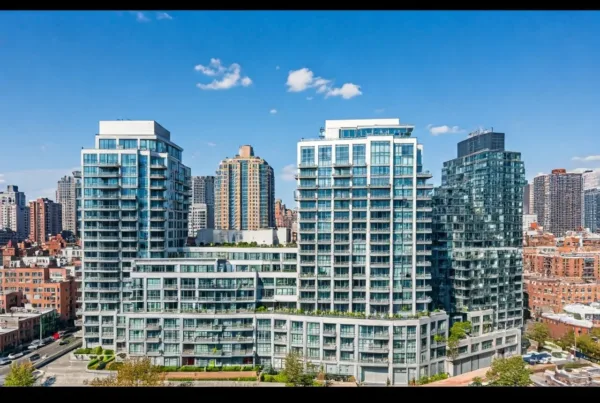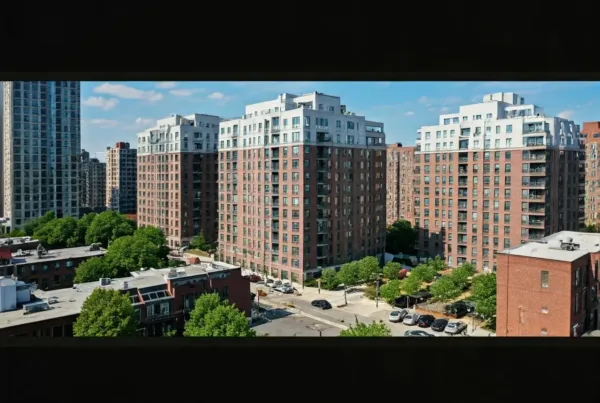Curious about the fees sponsors pay? Dive into our guide breaking down all the common charges you need to know!
Table of Contents
Introduction to Common Charges in Real Estate Developments
When it comes to real estate, there are certain costs that all residents in a building need to share. These are known as common charges, which play a crucial role in maintaining the property and its amenities. In the bustling city of New York, especially in new developments, understanding common charges is essential for anyone looking to buy a condo or apartment. Let’s delve into what common charges are and why they matter so much in the world of real estate.
What Are Common Charges?
Common charges are fees that all residents in a building, whether they own or rent their unit, contribute towards. These charges typically cover the costs of maintaining the building, its common areas, and amenities. For example, common charges may go towards expenses like cleaning services, landscaping, security, and repairs. Essentially, they help keep the property in top shape for everyone to enjoy.
Importance of Common Charges
Understanding common charges is crucial for prospective buyers of new condos or apartments. By knowing what common charges encompass and how much they amount to, potential residents can budget effectively and make informed decisions about their real estate investments. Common charges also play a role in determining the overall value of a property, as they reflect the quality of maintenance and services provided in the building.
Role of the Sponsor in New Real Estate Developments
Sponsors play a vital role in the creation of new real estate developments in cities like New York City. They are key players in bringing new construction projects to life and have specific responsibilities in the development process.
Who is the Sponsor?
A sponsor, in the realm of real estate, is typically a developer or individual who initiates and oversees a new construction project. They are responsible for financing, building, and selling units in the development. Sponsors often work closely with architects, contractors, and real estate agents to bring their vision to fruition.
Tasks of a Sponsor in NYC Developments
In New York City, sponsors have several crucial tasks when it comes to new real estate developments. They are responsible for creating sponsor units, which are often the first units to be sold in a new building. Sponsors also set the initial prices for these units and may offer incentives to attract buyers.
Types of Common Charges Paid by the Sponsor
One of the common charges paid by the sponsor in a new construction project is maintenance fees. These fees cover the costs associated with maintaining the building and its common areas. This can include expenses for cleaning services, repairs, landscaping, and general upkeep to ensure the property remains in good condition for all residents.
Amenity Charges
Another type of charge that sponsors may cover are amenity charges. These charges are related to the shared amenities within the building, such as pools, gyms, and community rooms. Sponsors invest in providing these amenities to enhance the living experience for residents, and the charges help offset the costs of maintaining and operating these facilities.
Insurance Costs
In addition to maintenance and amenity charges, sponsors also typically pay for insurance costs related to the building. This can include property insurance to protect against damage or loss to common areas, liability insurance in case of accidents or injuries on the premises, and other types of coverage necessary to safeguard the building and its occupants.
Incentives for Buying Sponsor Units
When it comes to purchasing a new home in a bustling city like NYC, buying a sponsor unit can come with some enticing incentives. Let’s explore why choosing a sponsor unit might be a smart move and what benefits sponsors often offer to prospective buyers.
| Charge | Explanation |
|---|---|
| Management Fee | A fee charged by the sponsor for managing the investment portfolio on behalf of the investors. |
| Performance Fee | A fee charged by the sponsor based on the performance of the investment portfolio, usually calculated as a percentage of profits. |
| Administrative Fee | A fee charged by the sponsor to cover administrative costs related to managing the investment. |
| Distribution Fee | A fee charged by the sponsor for distributing income and profits to investors. |
| Redemption Fee | A fee charged by the sponsor for redeeming shares of the investment portfolio before a certain period. |
Lower Initial Prices
One of the most appealing aspects of buying a sponsor unit is that they are typically priced lower than other units in the building. Since sponsors are looking to sell these units quickly to kickstart sales, they often offer them at a discounted rate compared to units sold later in the development process. This means that buyers can get a brand-new home at a more affordable price by opting for a sponsor unit.
Customization Options
Another attractive incentive of buying a sponsor unit is the potential for customization. Sponsors may allow buyers to have a say in certain design elements, finishes, or upgrades before the unit is completed. This personalization can make the new home feel uniquely yours and tailored to your preferences, creating a more satisfying living experience.
Builder Warranties
When purchasing a sponsor unit in a new construction building, buyers often benefit from builder warranties. These warranties provide assurances that the home has been constructed using high-quality materials and workmanship. In the event that any issues arise after the purchase, such as structural defects or malfunctions, the builder warranty can offer peace of mind knowing that repairs or replacements may be covered.
Summary of Common Charges and Sponsor Roles
Common charges are fees paid by residents of a building to cover shared expenses like maintenance and amenities. Understanding common charges is crucial for those looking to buy condos or apartments in new NYC developments.
The Sponsor’s Contribution
The sponsor plays a vital role in new real estate developments in NYC. They are responsible for developing and selling sponsor units, bearing certain costs like maintenance fees, amenity charges, and insurance costs. Sponsors also provide incentives to buyers, such as lower initial prices, customization options, and builder warranties.
Frequently Asked Questions (FAQs)
What happens if a sponsor doesn’t pay common charges?
When a sponsor fails to pay common charges, it can have negative consequences for the building and its residents. The lack of payment could lead to a shortage of funds for essential services like maintenance, repairs, and amenities. This may result in a decline in the overall quality of living within the building and potentially decrease property values for all residents.
Do common charges vary in different NYC developments?
Yes, common charges can vary between different NYC developments. The amount of common charges is influenced by factors such as the size of the building, the number of amenities provided, the level of services offered, and the overall operating expenses of the property. Therefore, it is essential to carefully review and understand the common charges specific to each development before making a purchasing decision.
Can common charges increase over time?
Begin your search and start earning cash back!
Common charges have the potential to increase over time due to various factors. Changes in operating costs, inflation, necessary repairs or upgrades to the building, and the addition of new amenities can all contribute to an increase in common charges. It is important for buyers to be aware of the possibility of these changes and budget accordingly to avoid any unexpected financial burdens.







